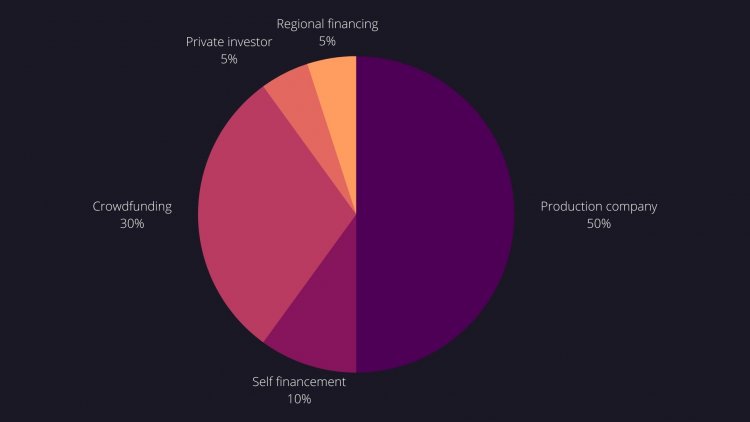The Art of Pitching to a Producer
The Art of Pitching to a Producer

The Art of Pitching to a Producer
You are a Screenwriter / Director and you woke up one day with the "story of a lifetime" in your mind. You took out your notebook or your computer and wrote a script that you believe will make an award-winning film. You have a vision, you have the guts to do this and even the support of fellow filmmakers.
However, you are still missing one thing: the money to produce your film.
In order to raise the interest of prodution companies to finance your short film or your series, you are going to meet them and talk to them about your project and why your project is worth their investment.
This short but crucial presentation is what we call a "Pitch to the Producer", and every filmmaker needs to be comfortable with this process in order to sell their idea and work in the industry.
I thought, if this is such an important step in the creation of a film, why not talk a little about what the pitch really is and what it must include to convince a producer ?
1) What is a pitch?
A pitch could be defined as a short (1 to 10 minutes long) presentation of your film and its content. It is often presented as a Powerpoint document or an edited video with music and images, because it is something that requires visual content.
It is, most of the time, the 1st thing that the producers will look at when considering your film. Because, yes, unfortunately, some producers don't even read the whole script before listening to you pitching!
Therefore, it is of major importance that your pitch contains all the information necessary for the producers to understand what the story is about, what are the themes, how this film will be made and become successful... And, obvisouly, what's in it for them.
2) What should I include in my pitch?
There are a few details that you must know about your future film while preparing it and, therefore, that your pitch must contain.
-
- Title / Genre / Duration of your film. This information comes first. Don't forget it! If the producers don't understand what genre your film is and how long it will be, they have no idea what you are asking from them. The needs of a film will be completely different wether it is a comedy or a science-fiction film.
- The Premise of your film: a one-or-two-lines long sentence that presents the story of your film. For example: Timmy and Charlie fight for the last candy bar until realizing that their mother ate it already.
- The synopsis and message of your film: In the synopsis, you can develop your premise into a short paragraph. Don't forget to include what your film really is about: what message is at the core of the story? In the case of the Timmy and Charlie story, is it a lesson about sharing? Is there the theme of family relationships? What producers really want to see is what the film explores because this way, they will know what the audience of this film will be.
- The vision of the director: Producers want to know what is your vision for this film regarding your characters, your locations, your choice of colours, of framing...Include anything that might help them get a glimpse of what your film is going to be about. It can be a moodboard, a storyboard, your inspirations (paintings, books, other films...). The more details you give, the more prepared you seem, and that is what will convince the producers that they can trust you and invest in you and your film.
- The audience you are aiming at: Do not forget to make it clear who this film is for. If your film is designed for children, it will not look the same nor attract the same people than a horror film with an age restriction. This is a very important information especially when it comes to selling and broadcasting the film, which is what the production companies are interested in.
- An approximate budget for the production of your film and how you wish to obtain the financement: Here, you might want to include a pretty graph to show the producers that you have thought about the financing of your film and have worked on making it doable.
Your graph could look like that, showing the amount of money that you require from the producers and the amount that will be collected by other means:

If you include all these things in your pitch and manage to be clear and concise (remember that a pitch should be easy to remember and between 1 and 10 minutes long), you are on the right path to convince producers that your project is ready and that it is only missing a little financial support to finally take off.
Of course, the producers will have questions waiting for you at the end of your presentation. My advice is to prepare for any question and be ready to answer it with no hesitation. Know your project, be sure of where you are going with it and why it is a good project, and you should be ready to answer their questions clearly.
So there you go!
I hope this has helped you figure out how to format your pitch and what to include in it to convince a production company to invest in your film.
At the end of the day, the best thing to do is to rehearse your pitch as much as possible and enjoy doing it, of course! As a Screenwriter/Director, you are going to pitch your ideas to lots of companies throughout your life, so have fun with it!
Article by Ambre Vanneste, 13th April 2021












